#dentaltips
Photo
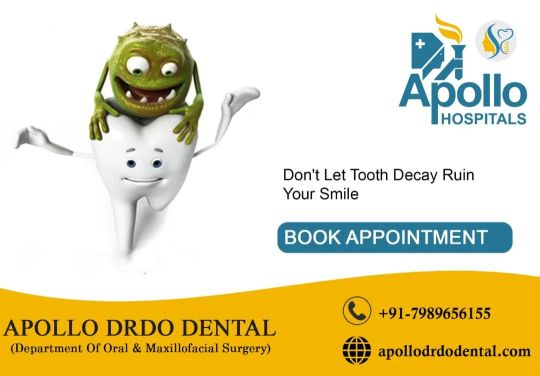
#DentalCare #HealthyTeeth #OralHealth #DentalHealth #DentalHygiene #SmileMakeover #TeethCleaning #TeethWhitening #DentalTips #HealthyGums #Flossing #Toothbrushing #CosmeticDentistry #Orthodontics #DentalImplants #DentalCheckup #DentalExam #PediatricDentistry #EmergencyDentist #Periodontics #Endodontics #Prosthodontics #DentalEducation #PreventiveDentistry #DentalTechnology #DigitalDentistry https://www.instagram.com/p/Cp6_R0xvrLR/?igshid=NGJjMDIxMWI=
#dentalcare#healthyteeth#oralhealth#dentalhealth#dentalhygiene#smilemakeover#teethcleaning#teethwhitening#dentaltips#healthygums#flossing#toothbrushing#cosmeticdentistry#orthodontics#dentalimplants#dentalcheckup#dentalexam#pediatricdentistry#emergencydentist#periodontics#endodontics#prosthodontics#dentaleducation#preventivedentistry#dentaltechnology#digitaldentistry
2 notes
·
View notes
Text
youtube
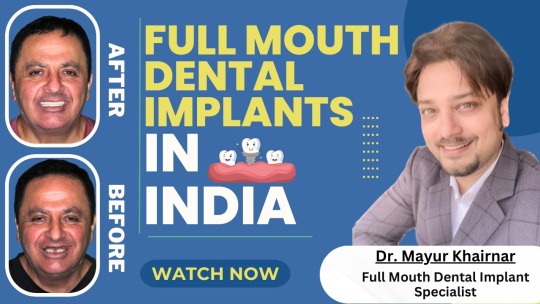
#fullmouthdentalimplantsinindia#fullmouthdentalimplantsindia#dentalimplant#dentaldesignsmile#dentaltreatment#dentist#dental#dentalcare#dentalcavity#dentistry#dentalimplantology#dentalclinic#dentaldigest#dentalfloss#dentalbraces#dentalbridge#dentalassistant#dentalextraction#dentalhygienist#dentalveneers#dentaleductaion#dentalequipment#dentaltech#denture#dentalhygiene#dentalcleaning#dentalfilling#dentalgumproblems#dentalvideo#dentaltips
0 notes
Text

🌟 Discover Rajkot's Premier Dental Clinic 🌟
🦷 Dev Dental Care 🦷
Dr. Keyur D. Patel and our dedicated team are proud to announce that we are now the top-ranking dental clinic in Rajkot, Gujarat! When you search for "best dental implants in Rajkot" or "best dental implant treatment in Rajkot," Dev Dental Care is your trusted destination, ranked first on Google search results among all competitors. 💪🏼✨
At Dev Dental Care, we prioritize your oral health and smile transformation journey. From dental implants to cosmetic dentistry, we offer personalized care and innovative treatments to enhance your dental experience.
Join our growing community of happy smiles! Follow us for the latest updates, tips, and dental insights. Let's create beautiful smiles together! 😁🌟
👉🏼 Don't forget to save and share this post with your friends and family in Rajkot!
DevDentalCare #TopDentalClinic #RajkotDentistry #SmileTransformation #DentalImplants #CosmeticDentistry #OralHealthMatters #HealthySmiles #DrKeyurPatel #BestDentist #DentalExperts #GoogleRanking #HappyPatients #NewSmiles #BeautifulSmiles #DentalWellness #TopRanking #DentalCare #RajkotHealth #SmileMakeover #DentalTechnology #PatientCare #DentalExcellence #CommunityOfSmiles #HealthyTeeth #DentalLove #InstaDentist #DentalTips #RajkotGujarat
#dentalcare#dentalimplant#smiledesigning#dentistinrajkot#dentalclinicinrajkot#bestdentistinrajkot#orthopedic implants#fixedteeth#rajkot#tooth implant#dentaltips#dentistgooglesearch#google ranking in rajkot for dentist#dental technology#best dentsit
0 notes
Text

Miranda Dental Care has excellence in cavity problems. When working on the upper first premolar, avoid attempting to expand the access cavity on the mesial wall's side. Why? Because there's a mesial concavity at the cemento-enamel junction, and it's a potential risk for obtaining lateral coronal perforation. Precision is key in ensuring successful procedures!
Book your appointment with us today and get the painless treatment.
Contact us today and let's make you a part of our dental family!
Miranda Dental Centre: 02 9525 9081 | 02 9540 1044
#Mirandadentist#cavityprevention#dentaltips#cavitytip#oralhealth#protectcementoenamel#saveenamel#riskyprocedure
0 notes
Text

Join our Speaker Ms. Nazar Kamangar, CEO of Brushlink and president of Smile and Grow Foundation at the International Dental, Advanced Dentistry, and Oral Health UCG Congress which is CME/CPD recognized, from July 29-30, 2024 Holiday Inn Dubai, United Arab Emirates.
Speech Title: “Dental Medical Integration ”
WhatsApp us at: https://wa.me/442033222718?text=
Register here: https://dental.universeconferences.com/registration/
To know more about our speaker visit: https://youtu.be/zDNGsK82aQE
#DentalMedical#MedicalIntegration#Dentistdies#earlydiagnosisdentistry#SmileCare#dentalTips#TeethWhitening#OralHygiene#dentalCheckup#GumHealth#orthodontics#dental#Advancedentistry#OralHealthcongress
0 notes
Text
Unlock the Secrets to Healthy Smiles for Your Kids!
Transform brushing time into a delightful activity and instill healthy dental habits in your kids! Explore our comprehensive guide now.
#KidsDentalCare#ParentingTips#HealthySmiles#DentalHealth#PediatricDentistry#OralHygiene#ChildHealth#DentalTips#ParentingGuide#DentalHabits#TeethCleaning#PreventiveDentistry#DentalAnxiety#KidsDentist
0 notes
Text
0 notes
Text
February is 𝗡𝗮𝘁𝗶𝗼𝗻𝗮𝗹 𝗣𝗲𝘁 𝗗𝗲𝗻𝘁𝗮𝗹 𝗛𝗲𝗮𝗹𝘁𝗵 𝗠𝗼𝗻𝘁𝗵!
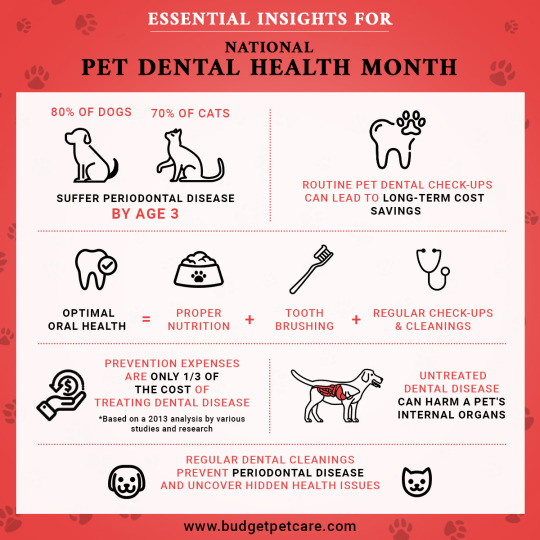
Your pets deserve the best dental care possible, and we're here to help you with that.
So we have some 𝗔𝗺𝗮𝘇𝗶𝗻𝗴 𝗜𝗻𝘀𝗶𝗴𝗵𝘁𝘀 for you to read on.
Save big on pet dental care at budgetpetcare.com this month and treat your pets to a healthy mouth!
#PetDentalHealth#PetCare#HealthyPets#PetLovers#DentalTips#PetSmile#FurryFriends#PetHealth#PetSupplements#PetWellness#PetParents#PetAdvice#PetExperts#PetDentist#Petdentalhealthmonth
0 notes
Text
#toothextractionrecovererytips#timberdentalcareofthornton#dentist#thorntondentist#dentistinthornton#dentistnearme#dentalcare#dentaltips
0 notes
Text
Understanding Root Cavities and Strategies for Prevention
Welcome to our blog! Today, we're diving deep into the world of oral health to discuss a topic that often goes unnoticed – root cavities. While most people are familiar with cavities on the surface of their teeth, not many realize that tooth decay can also occur at the roots. Root cavities can be painful and lead to serious dental issues if left untreated, making it crucial for everyone to understand the causes, symptoms, and prevention strategies associated with this condition. So, whether you're a dental enthusiast or simply curious about maintaining optimal oral health, keep reading as we unravel the secrets behind root cavities and explore effective ways to prevent them. Let's get started!

Causes and Risk Factors
Root cavities, also known as root caries, are caused by a combination of factors that can increase the risk of tooth decay in the roots of teeth. One of the main causes is poor oral hygiene practices, such as inadequate brushing and flossing. When plaque and bacteria build up on the teeth and gums, it can lead to the formation of cavities.
Another risk factor for root cavities is age. As we get older, our gums tend to recede, exposing more of the tooth's root surface. This makes it easier for bacteria to attack the vulnerable areas.
Certain medical conditions can also contribute to an increased risk of developing root cavities. Conditions like dry mouth (xerostomia) decrease saliva production, which helps protect against tooth decay. Additionally, individuals who have had radiation therapy to their head or neck may be at higher risk due to damage done to salivary glands.
Diet plays a significant role in dental health as well. Consuming a diet high in sugar and carbohydrates provides fuel for bacteria in your mouth that produce acid – leading to enamel erosion and cavity development.
Regular dental check-ups are crucial for identifying any signs of root cavities early on so they can be treated promptly.
By understanding these causes and risk factors associated with root cavities, you can take proactive steps towards prevention through proper oral hygiene practices, dietary changes, and regular visits to your dentist in Denver .
Symptoms and Diagnosis
When it comes to root cavities, early detection is key in preventing further damage. While some people may not experience any symptoms initially, there are several signs that can indicate the presence of a root cavity.
One common symptom of a root cavity is tooth sensitivity. If you notice pain or discomfort when eating or drinking hot, cold, or sweet foods and beverages, it could be a sign of a cavity forming near the gumline.
Another indication of a root cavity is discoloration around the affected tooth. You may notice dark spots or stains on the surface of your tooth or along the gumline.
In some cases, you may also experience bad breath or an unpleasant taste in your mouth. This can occur if bacteria have invaded the soft tissues surrounding the tooth due to decay.
To diagnose a root cavity, your dentist will conduct a thorough examination of your teeth and gums. They may use dental X-rays to get a closer look at any potential cavities hidden beneath the gumline.
If they discover a cavity during their examination, they will determine its severity and recommend an appropriate treatment plan based on their findings.
Remember, if you suspect you may have a root cavity but don't experience any obvious symptoms yet, it's still important to schedule regular dental check-ups for early detection and prevention.
Strategies for Prevention
Maintaining proper oral hygiene practices is key when it comes to preventing root cavities. Brushing your teeth at least twice a day with fluoride toothpaste and flossing daily can help remove plaque and bacteria that contribute to cavity formation. When brushing, be sure to use gentle, circular motions and pay close attention to the gumline and hard-to-reach areas.
In addition to good oral hygiene habits, making dietary changes can also play a role in preventing root cavities. Limiting sugary foods and beverages helps reduce the amount of acid produced by bacteria in the mouth, which can erode tooth enamel over time. Opt for healthier snack options like fruits, vegetables, and dairy products that promote strong teeth.
Regular dental check-ups are essential for preventive care. Dentists in Denver recommend scheduling routine exams every six months. During these visits, your dentist will conduct a thorough examination of your teeth and gums, looking for signs of decay or other issues early on before they become more serious problems.
By following these strategies for prevention, you can significantly reduce your risk of developing root cavities. Remember that prevention is always better than treatment when it comes to maintaining optimal oral health! So don't forget to take proactive steps today towards protecting your beautiful smile tomorrow!
Proper Oral Hygiene Practices
Maintaining good oral hygiene is essential in preventing root cavities and promoting overall dental health. Here are some key practices to incorporate into your daily routine:
1. Brushing: Brush your teeth at least twice a day using a soft-bristled toothbrush and fluoride toothpaste. Be sure to brush along the gumline, as well as the front, back, and chewing surfaces of each tooth.
2. Flossing: Regular flossing helps remove plaque and food particles from between the teeth and along the gumline. Use about 18 inches of dental floss, winding it around your middle fingers and guiding it gently between each tooth.
3. Mouthwash: Rinse with an antimicrobial mouthwash after brushing and flossing to further reduce bacteria in your mouth.
4. Tongue Cleaning: Don't forget to clean your tongue! Bacteria can accumulate on its surface, leading to bad breath and potential dental problems. Use a tongue scraper or simply brush it gently with your toothbrush.
5. Proper Technique: When brushing, use gentle circular motions rather than harsh scrubbing that can damage enamel or irritate gums.
6. Replace Your Toothbrush Regularly: It's recommended to replace your toothbrush every three months or sooner if bristles become frayed or worn out.
By incorporating these proper oral hygiene practices into your daily routine, you can significantly reduce the risk of developing root cavities and maintain optimal dental health for years to come!
Remember that prevention is always better than treatment when it comes to oral health care! So keep up with these habits consistently alongside regular visits to our dentist in Denver for professional cleanings and check-ups.
Dietary Changes for Prevention
When it comes to preventing root cavities, making certain dietary changes can play a crucial role. By adopting a few simple habits, you can significantly reduce the risk of developing these painful and potentially serious oral health issues.
First and foremost, limiting your intake of sugary foods and beverages is essential. These items are major culprits when it comes to tooth decay. The bacteria in your mouth feed on sugar, producing acids that erode the enamel and eventually lead to cavities. Cutting back on sugary snacks, sodas, and candies will go a long way in protecting your teeth.
Additionally, incorporating more tooth-friendly foods into your diet can provide added protection against root cavities. Foods rich in calcium like dairy products - milk, cheese, yogurt - help strengthen teeth by replenishing lost minerals. Crunchy fruits and vegetables also promote good oral health as they stimulate saliva production and act as natural cleansers for the teeth.
Staying hydrated with water throughout the day is key for maintaining optimal dental health. Water not only helps wash away food particles but also keeps your mouth moist which prevents dryness that could contribute to cavity formation.
By implementing these dietary changes into your daily routine along with proper oral hygiene practices and regular dental check-ups (link), you'll be taking proactive steps towards preventing root cavities before they even have a chance to develop! So why wait? Start making those healthy choices today!
Regular Dental Check-Ups
Maintaining regular dental check-ups is crucial for preventing and addressing root cavities. By visiting your dentist in Denver at least twice a year, you can stay on top of your oral health and catch any potential issues early on.
During these check-ups, your dentist will thoroughly examine your teeth and gums, looking specifically for signs of decay or root cavities. They may also take X-rays to get a closer look at the underlying structures of your teeth.
In addition to checking for existing cavities, regular dental check-ups allow your dentist to assess the overall health of your mouth. They can identify any risk factors that may make you more susceptible to developing root cavities and provide personalized recommendations for prevention.
Furthermore, during these appointments, dentists often perform professional cleanings to remove plaque and tartar buildup that cannot be adequately addressed through brushing and flossing alone. This helps keep bacteria at bay and reduces the risk of cavity formation.
By making it a priority to schedule regular dental check-ups with a trusted dentist in Denver, you are taking proactive steps towards maintaining optimal oral health. Remember: prevention is key when it comes to avoiding painful root cavities!
Treatment Options for Existing Root Cavities
When it comes to treating existing root cavities, there are several options that your dentist in Denver may recommend based on the severity of the cavity and your overall oral health. Here are some common treatment options:
1. Dental Fillings: If the root cavity is small or moderate in size, a dental filling may be sufficient. Your dentist will remove the decayed portion of the tooth and fill it with a tooth-colored composite resin material.
2. Dental Crowns: In cases where the root cavity is larger or more extensive, a dental crown may be necessary. A crown can provide added strength and protection to a weakened tooth structure.
3. Root Canal Therapy: If the root cavity has reached the pulp of your tooth, you may require a root canal procedure. This involves removing infected tissue from inside the tooth and sealing it to prevent further infection.
4. Tooth Extraction: In severe cases where other treatments are not feasible or successful, extraction of the affected tooth may be necessary. Your dentist will discuss alternatives such as dental implants or bridges to replace missing teeth.
It's important to remember that early detection and prompt treatment are key in preventing further damage from root cavities! Regular check-ups with your dentist in Denver can help identify any potential issues before they escalate into bigger problems.
Remember, each case is unique, so it's crucial to consult with your dentist for personalized treatment recommendations tailored specifically to your needs! Don't hesitate - take action today to preserve your oral health!
Understanding root cavities and adopting strategies for prevention is crucial in maintaining optimal oral health. By practicing proper oral hygiene, making dietary changes, and scheduling regular dental check-ups, you can significantly reduce your risk of developing root cavities.
Remember to brush your teeth at least twice a day with fluoride toothpaste, floss daily to remove plaque between the teeth and along the gumline, and rinse with antimicrobial mouthwash to kill bacteria. Avoid sugary foods and drinks as much as possible, opting instead for a balanced diet rich in fruits, vegetables, lean proteins, and dairy products.
Regular visits to your dentist in Denver are essential for identifying any early signs of root cavities or other dental issues. Your dentist will perform a thorough examination of your teeth and gums and may recommend preventive treatments such as dental sealants or fluoride applications.
If you already have existing root cavities, treatment options may include dental fillings or crowns to restore the affected teeth. In severe cases where there is extensive damage to the tooth structure or infection has spread to the underlying tissues, root canal therapy may be necessary.
By taking proactive steps towards prevention and seeking appropriate treatment when needed from a trusted dentist in Denver like Dr. Sweis and Dr. Gart, you can maintain strong roots that support a healthy smile.
Remember that prevention is always better than cure when it comes to oral health. So start implementing these strategies today for a cavity-free future!
0 notes
Text
0 notes
Text
youtube
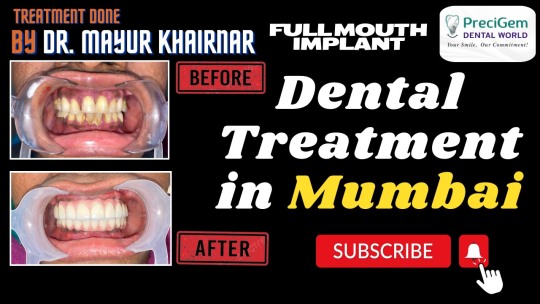
#dentaltreatmentinmumbai#dentaltreatmentmumbai#dentaltreatment#dentist#dental#dentalcare#dentalcavity#dentalimplant#dentaltips#dentalclinic#dentaldesignsmile#dentalhealing#dentistry#dentalhygiene#dentalimplantology#dentalcleaning#dentaltechnology#dentalfilling#dentalgumproblems#dentalimplantcost#dentalimplantsurgery#dentalimplantsnearme#dentalvideo#denture#dentalhealth#dentaldigest#dentalfloss#dentalbraces#dentalbridge#dentalassistant
1 note
·
View note
Text
Drugs Used In Periodontal Therapy Short Essay Question And Answers
#OralCare#GumHealth#DentalTips#OralHygiene#DentalWellness#GumDisease#DrugsUsedInPeriodontalTherapyShortEssayQuestionAndAnswers
0 notes
Text

NEW POSTER ALERT!
We are pleased to announce Ms. Paola Granda, General Dentist from USA, will join us as a Poster Presenter at the International Dental, Advanced Dentistry, and Oral Health UCG Congress which is CME/CPD recognized, from July 29-30, 2024 Holiday Inn Dubai, United Arab Emirates.
Title of the Poster: “Pathways to Obtaining a Dental License in the United States”
WhatsApp us at: https://wa.me/442033222718?text=
Register here: https://dental.universeconferences.com/registration/
#DentalLicense #MedicalIntegration #Dental #earlydiagnosisdentistry #OralCare #dentalTips #TeethWhitening #OralHygiene #dentalCheckup #ObtainingGumHealth #orthodontics #dental #Advancedentistry #OralHealth
#DentalLicense#MedicalIntegration#Dental#earlydiagnosisdentistry#OralCare#dentalTips#TeethWhitening#OralHygiene#dentalCheckup#ObtainingGumHealth#orthodontics#dental#Advancedentistry#OralHealth
0 notes
Text
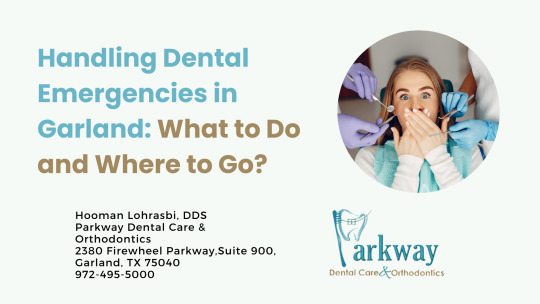
Handling Dental Emergencies in Garland: What to Do and Where to Go?
For bleeding gums, rinse and apply pressure, and contact our emergency dentistry in Garland. Lost fillings? Avoid extreme temperatures and schedule a prompt appointment with us. If you have a dental infection, rinse with salt water, take pain relievers, and reach out to Dr. Hooman Lohrasbi at 972-495-5000 or visit our website https://bitly.ws/ZQeq to know more. Your oral health is our priority, and we're here to help during dental emergencies.
#dentalemergencies#emergencydentistry#oralhealth#toothache#dentalcare#toothinfection#bleedinggums#emergencydentist#oralcare#healthysmile#quickresponse#dentaltips#painrelief#dentalfillings#dentalabscess
0 notes